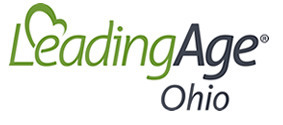Complete Story
11/18/2016
MOLST Call to ACTION
MOLST Call to Action!
On Wednesday Senator Lehner gave Sponsor Testimony for SB165, MOLST.
Following a lengthy summer election process, Ohio’s General Assembly hit the road running on Monday. The MOLST legislation (Senate Bill 165) was referred to the House Health and Aging Committee, and later in the day added to the agenda for Wednesday’s hearing. The legislative session is scheduled to end by mid-December, and the MOLST is closer to passing now than ever before. Unfortunately, opposition from Cincinnati Right to Life sent out a call to action this week, which also identified a number of other Right to Life chapters in the state, encouraging their members to oppose this legislation. Many of their concerns identify language in the bill that directly mirror parts of the Ohio State Statute under the Terminally Ill Act (2133) and the Power of Attorney Act (1337), which have been in place for decades. Unfortunately, this activity creates false concerns around language that has been in place for many years.
The Honoring Wishes Task Force NEEDS YOU to act by:
1. Contact your State Representative and ask them to contact Chair Gonzales and Vice-Chair Huffman of the House Health and Aging Committee to support a vote and passage of the MOLST. Let’s get this bill to the floor of the House for a vote before the end of this General Assembly!
2. If your State Representative is a member of the House and Aging Committee – Call and ask them to support passage of the MOLST! IF you have contacted your Representative recently or in the past, contact them again!! Now that the bill is in the health committee let’s demonstrate the support and need to move this piece of legislation. WE are that close but need EVERYONE’S VOICE to push this bill through the House.
To find your legislator, please click on the "Find My Legislator" button and follow the instructions to identify your legislator from the Ohio House of Representatives.
Once you identify your legislator, please call or email their office to voice your position and ask them for support!
Members of the House and Aging Committee
Representative Anne Gonzales – Chair; Steve Huffman, Vice-Chair
House Republicans: Representatives Jim Butler, Mike Duffy, Theresa Gavarone, Tim Ginter, Terry Johnson, Sarah LaTourette, Ron Maag, Derek Merrin, Kirk Schuring, and Robert Sprague.
House Democrats: Representatives Nickie Antonio, John Barnes, Heather Bishoff, Christie Kuhns, Michele Lepore-Hagan, Dan Ramos, and Emilia Strong Sykes.
NOW, More than ever, we are close!
Your voices are needed to demonstrate
support for this legislation.
KEY MESSAGES:
- Support passage of the MOLST, SB165, which is currently in the House Health and Aging Committee. This important piece of legislation will guide care for terminally ill patients and communicate their goals of care as they move from setting to setting.
- No one is required to complete a MOLST form. The MOLST form is VOLUNTARY and a way to uniformly document and transfer end-of-life medical orders. Just like any medical order, a patient or decision-maker should discuss and understand the options carefully with his or her medical professional. Further, nothing in the legislation or on the MOLST form is intended to create a bias in favor of more or less aggressive forms of treatment.
- The MOLST is patient-centered and patient-driven. The uniform MOLST form will allow the patient to understand better and drive his or her end-of-life care, including those decisions regarding the administration of life-sustaining treatment.
- The MOLST transforms an advance directive end-of-life goals of care into ACTIONABLE Medical Orders. An individual’s goals of care that they identify on Advance Directives have to be transcribed into actionable medical orders for healthcare providers to follow those uniquely developed declarations. The MOLST acts as a healthcare tool that demonstrates communication and acknowledgment of those goals of care in terms of appropriate medical orders.
- The MOLST is a standardized medical order form for terminally ill patients. The MOLST improves communications and continuity of care between healthcare providers and patient as well as from setting to setting.
- The MOLST form is transferable across settings of care. A MOLST form will be transferable across all settings, including emergency settings. A copy of a MOLST form is equally valid as an original, and medical professionals will be required to notify other medical professionals if they know a patient or decision-maker has completed a MOLST form.
- CMS, beginning January 2016, has approved reimbursement for end of life care consultation. When appropriate, the MOLST would document and communicate orders in a uniform approach throughout Ohio.
Legislation currently in place which will not be changed by this legislation:
- Ohio law allows an individual to make informed decisions about his/her medical care including refusing any and all treatment which aims to prolong life (ORC § 2133)
- Ohio law allows an individual to name an agent (attorney in fact) who would make informed medical decisions for the individual at his/her direction (ORC §1337.11-1337.17)
- Ohio law limits when an agent can authorize medical personnel to withdraw artificially or technologically supplied nutrition and hydration (ORC § 2133)
- When an individual has not named an agent for health care decision-making, Ohio law contains a priority list of who can make informed medical decisions when he/she in unable to make such decisions (ORC § 2133.08(B) & § 1337.16 D1bi)
